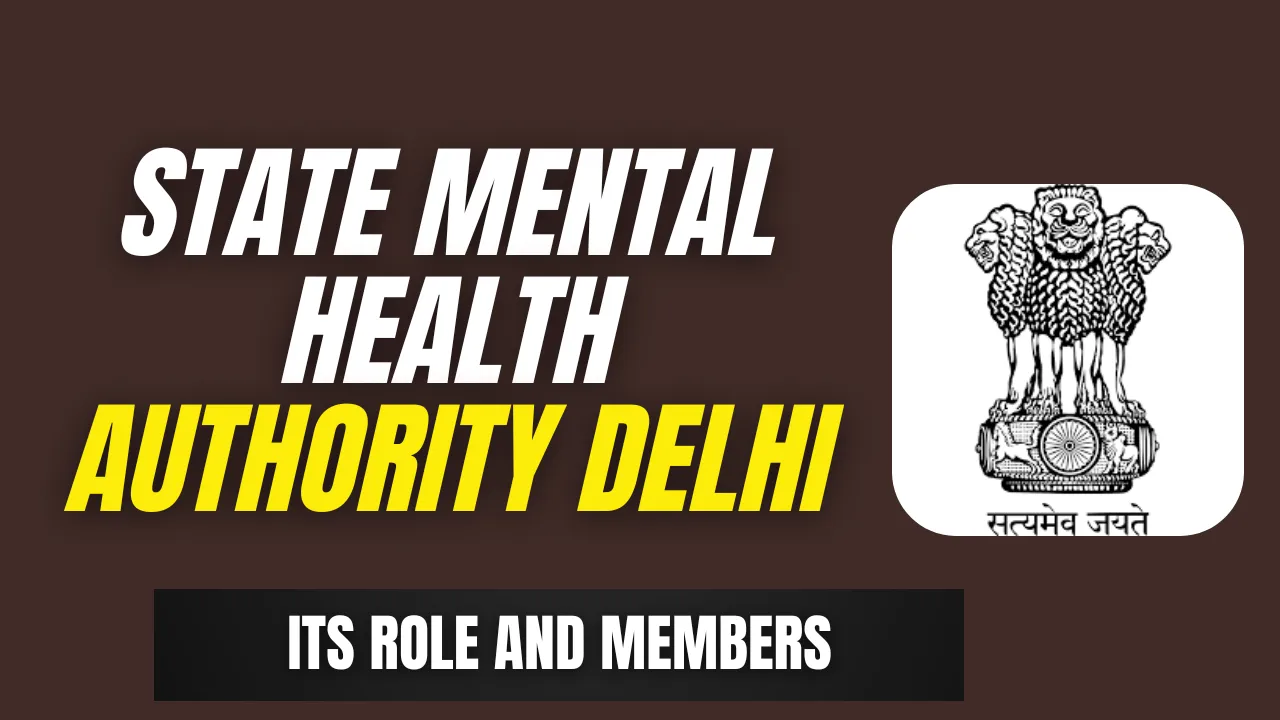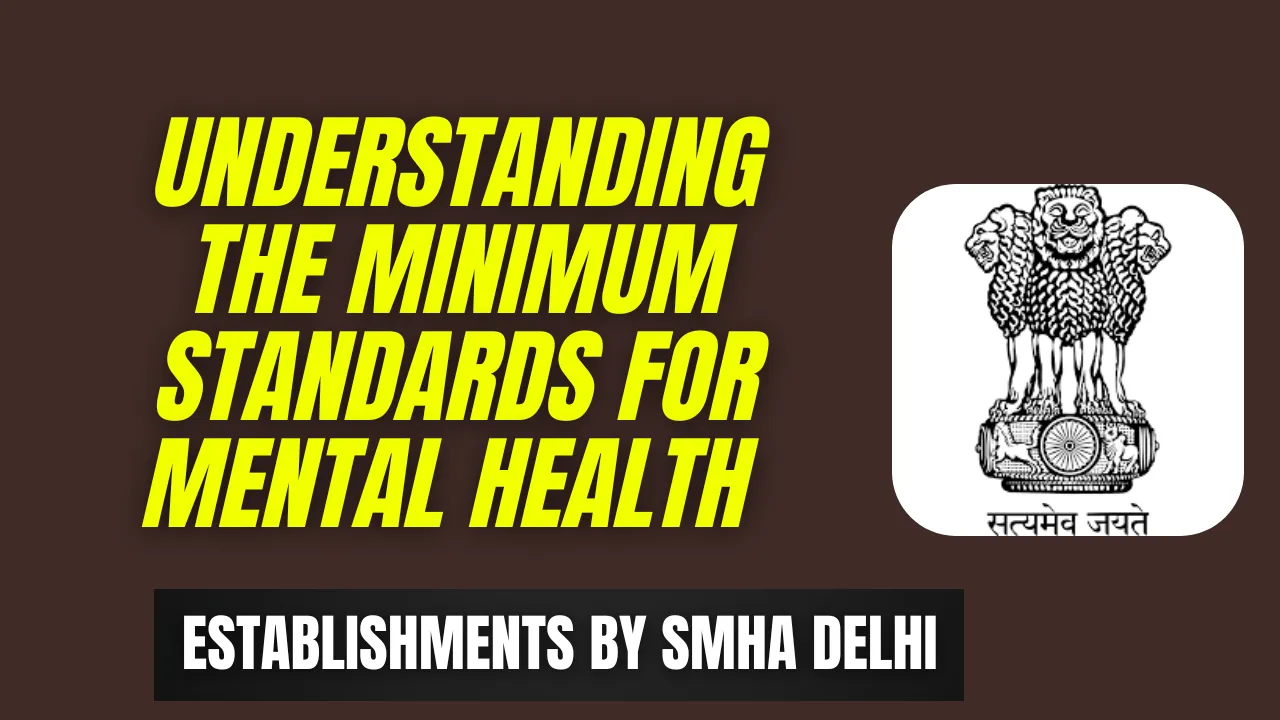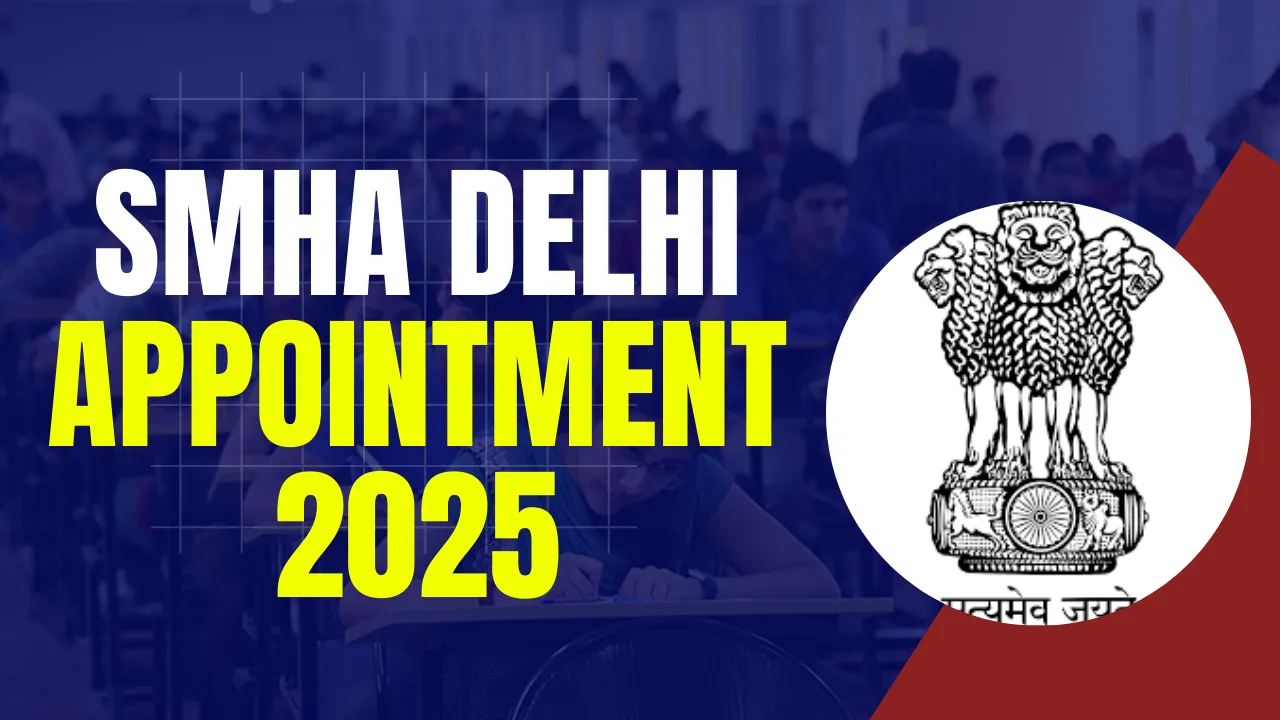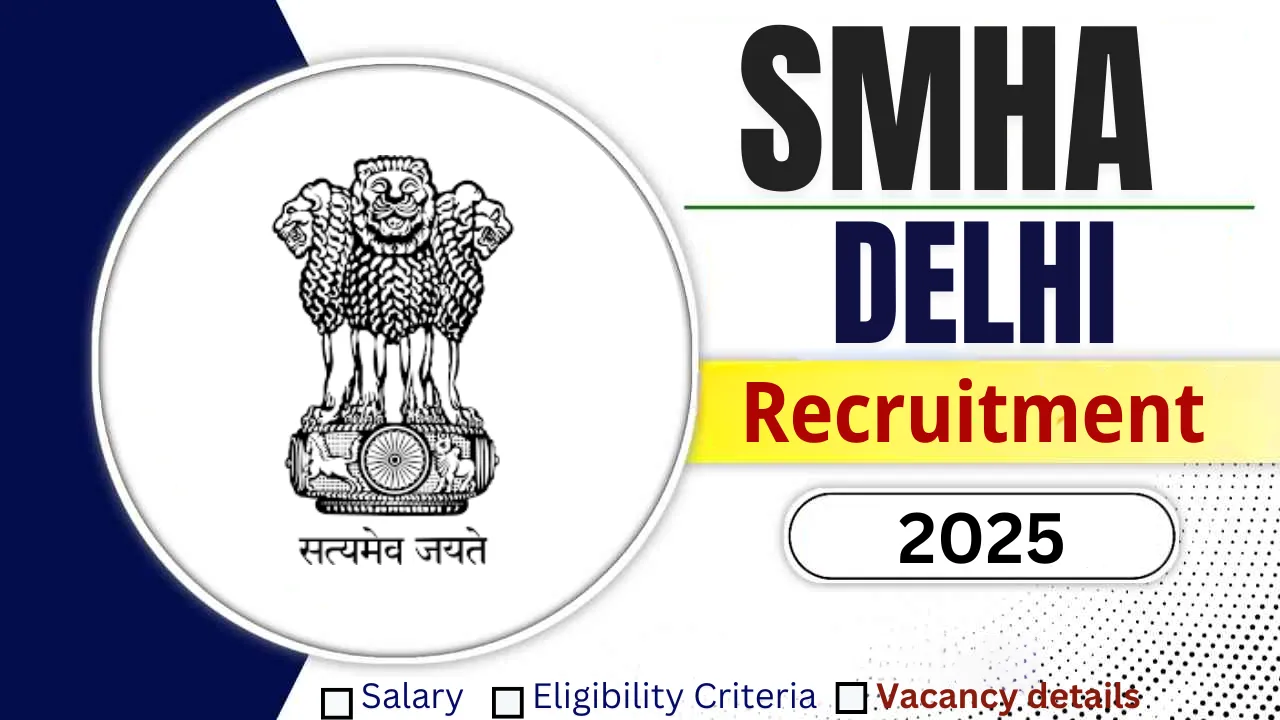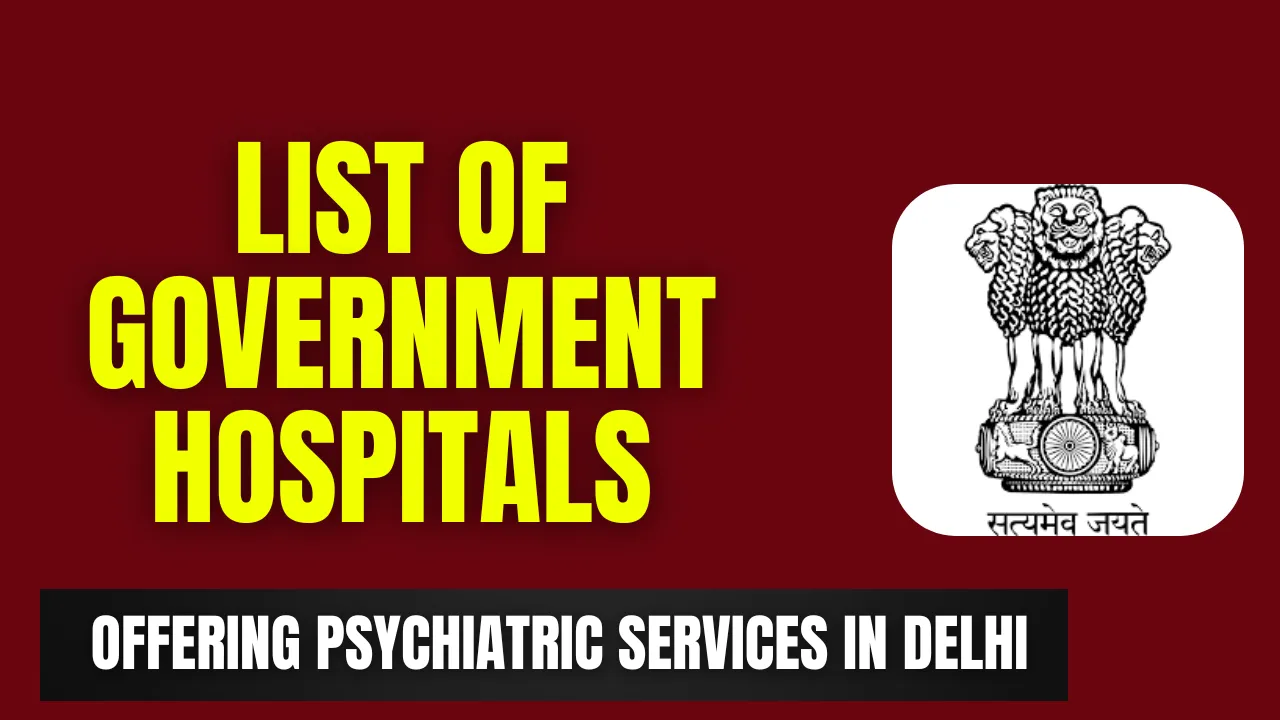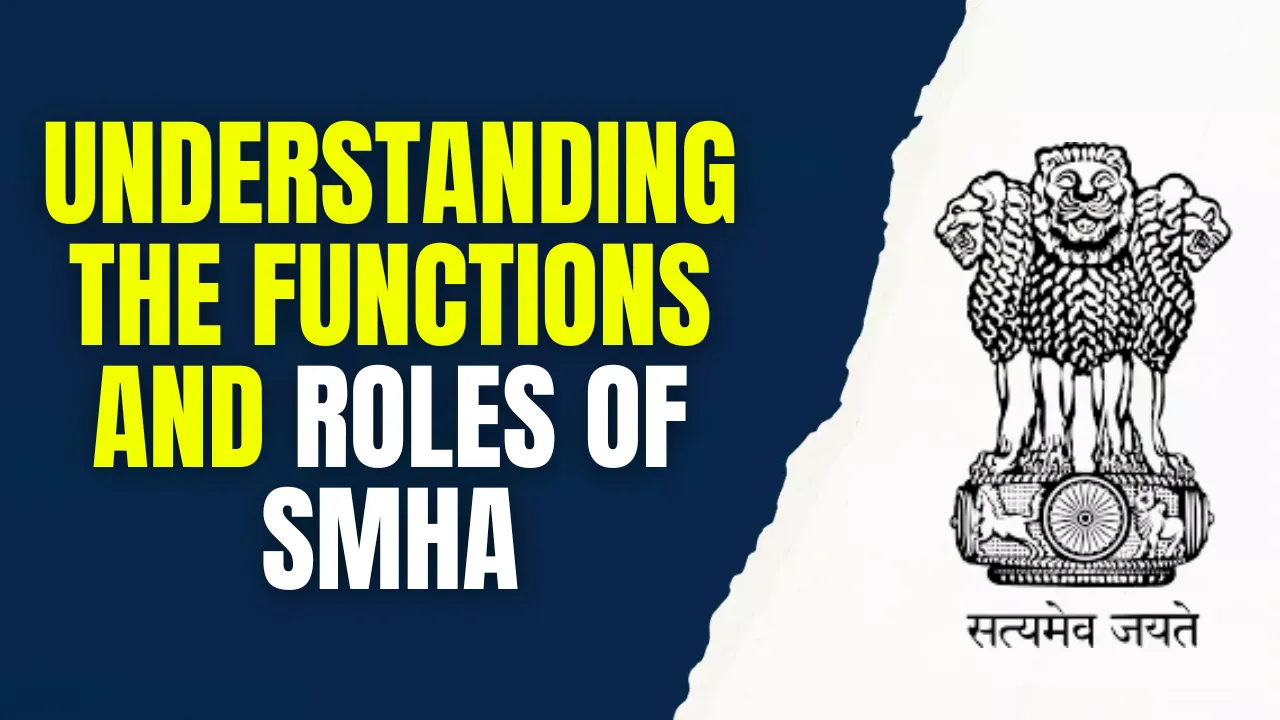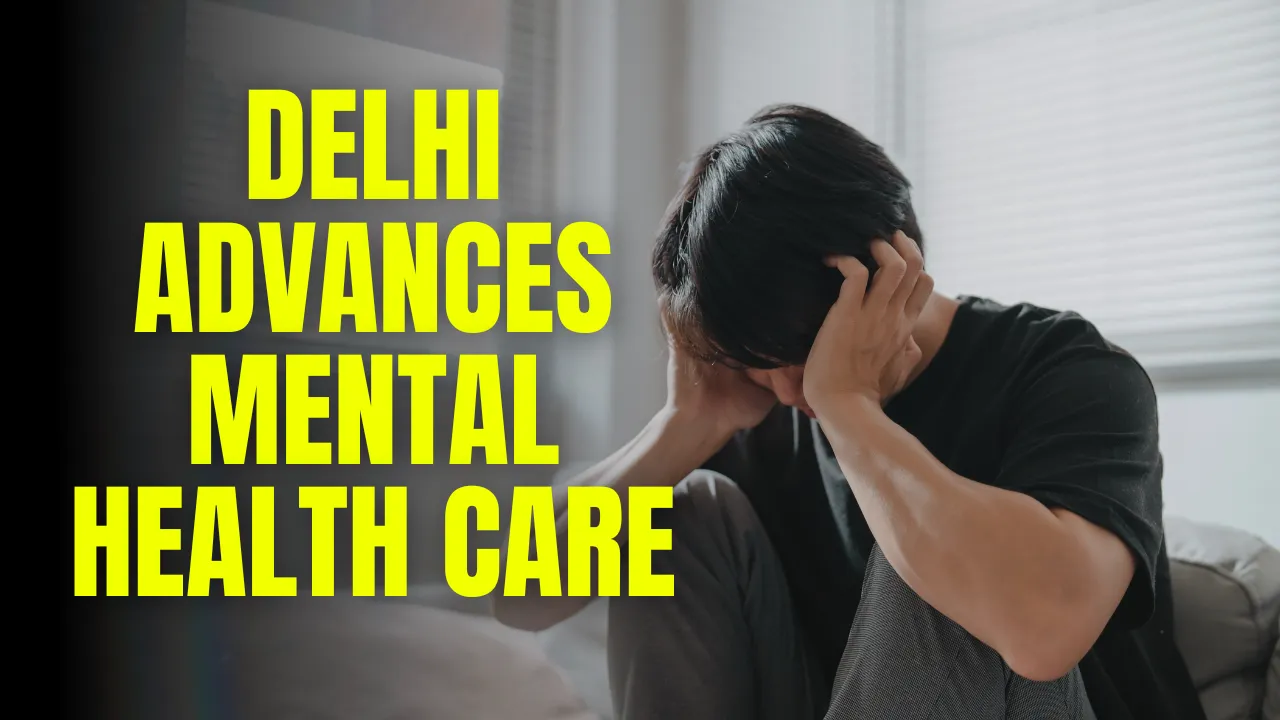State Mental Health Authority Delhi: The State Mental Health Authority Delhi has been instrumental in regulating mental health services and protecting the rights of individuals with mental illnesses. Established under the Mental Health Act of 1987, the authority has undergone significant transformations, especially after the introduction of the Mental Healthcare Act (MHA) of 2017. The new Act expanded the scope and composition of the authority, incorporating a wider range of members, including representatives from user groups, caregivers, and non-governmental organizations. This expansion was aimed at making mental health governance more inclusive and effective.
This article examines the evolution of the State Mental Health Authority Delhi, the impact of MHA 2017 on its structure and functions, and the challenges it faces. It also looks into the expanded role of the members of SMHA, their responsibilities, and the way forward to improve mental health services in Delhi.
Overview Table of State Mental Health Authority Delhi
| Key Information | Details |
| Established Under | Mental Health Act, 1987 |
| Key Legislation | Mental Healthcare Act, 2017 |
| Purpose | Regulation, oversight, and protection of rights in mental health services |
| Expanded Scope | Inclusion of user groups, caregivers, NGOs |
| Administration | Managed by IHBAS with Dr. Nimesh G. Desai as CEO |
| Main Responsibilities | Licensing, registration, training, and awareness |
| Key Challenges | Limited resources, administrative delays, need for trained professionals |
Formation and Evolution of SMHA
The State Mental Health Authority Delhi was constituted on February 8, 1994, under the Mental Health Act of 1987. Its primary objective was to regulate mental health establishments and ensure that they comply with ethical and professional standards. The authority is reconstituted every three years, with the latest reconstitution taking place in April 2008. Over the years, SMHA has played a key role in shaping mental health policies and ensuring that service providers adhere to established standards.
The Mental Healthcare Act of 2017 brought significant changes to the structure and functions of SMHA. The new law emphasized the protection of rights for individuals with mental illnesses and expanded the composition of the authority to include a broader spectrum of members. This shift was aimed at making the decision-making process more inclusive and reflective of the needs of patients and their caregivers.
Impact of the Mental Healthcare Act, 2017 on SMHA
The Mental Healthcare Act of 2017, which came into effect on May 29, 2018, introduced several key changes to the State Mental Health Authority Delhi. One of the most significant changes was the expansion of SMHA’s mandate to include not just regulatory functions but also training, awareness, and advocacy. The Act mandated the authority to ensure that mental health services are accessible, affordable, and of high quality.
Another major impact of the Act was the inclusion of a diverse range of members in the authority. For the first time, the composition of SMHA was broadened to include representatives from user groups, caregivers, and NGOs. This move was aimed at making the authority more patient-centric and ensuring that the voices of those directly affected by mental health policies are heard.
Interim Arrangements and Administration of SMHA
As per the decisions taken in the meetings of SMHA, the authority’s administration is currently managed by the Institute of Human Behaviour and Allied Sciences (IHBAS). Dr. Nimesh G. Desai, Director of IHBAS, serves as the Chief Executive Officer of SMHA. This interim arrangement was made to ensure that the authority continues to function smoothly until a permanent administrative structure is established.
The decision to operate SMHA from IHBAS was taken to leverage the institute’s expertise in mental health services. Regular meetings chaired by the Principal Secretary of Health and Family Welfare, GNCTD, have been held to oversee the functioning of the authority and to address any challenges promptly.
Expanded Scope and Responsibilities of SMHA Members
The Mental Healthcare Act of 2017 significantly broadened the scope of SMHA members. Previously, the authority’s membership was limited to government officials and healthcare professionals. However, the new Act expanded it to include representatives from user groups, caregivers, and NGOs working in the field of mental health. This change was made to ensure that decisions made by SMHA reflect the needs and concerns of patients and their families.
The responsibilities of SMHA members now extend beyond regulatory functions. They are also involved in raising awareness about mental health laws, providing training to mental health professionals, and addressing complaints from patients. This expanded role is expected to make the authority more proactive and responsive to the needs of the community.
Composition of SMHA as per MHA 2017
According to Section 46 of the Mental Healthcare Act, 2017, the composition of SMHA includes a mix of government officials, mental health professionals, and representatives from civil society. The chairperson of the authority is the Principal Secretary in the Department of Health of the State Government, with other members including:
- Joint Secretary in charge of mental health
- Director of Health Services or Medical Education
- Representatives from the Department of Social Welfare
- Eminent psychiatrists and mental health professionals
- Representatives of user groups, caregivers, and NGOs
This diverse composition is intended to ensure that the authority’s decisions are balanced and consider different perspectives. It also aims to prevent the authority from becoming a purely bureaucratic body.
Key Functions of SMHA
The key functions of the State Mental Health Authority Delhi include regulating mental health establishments, licensing mental health professionals, and ensuring compliance with legal and ethical standards. The authority is also responsible for maintaining a registry of mental health professionals and conducting regular inspections to ensure that services are delivered ethically and effectively.
Another important function of SMHA is to conduct training programs for mental health professionals to keep them updated about the latest developments in mental health care and related laws. The authority also organizes awareness campaigns to reduce stigma associated with mental health issues and educate the public about the rights of persons with mental illnesses.
Challenges and Future Directions for SMHA
Despite its expanded scope and responsibilities, the State Mental Health Authority Delhi faces several challenges. Limited funding and resources are among the most pressing issues, making it difficult for the authority to expand its services and conduct training programs effectively. Administrative delays and procedural complexities also pose challenges in implementing new policies.
To overcome these challenges, it is recommended that the government allocate more funds to SMHA and simplify administrative processes. Building stronger partnerships with NGOs and community organizations can also help in extending the reach of mental health services. Additionally, increasing the number of trained mental health professionals is essential to meet the growing demand for mental health services in Delhi.
Conclusion
The expansion of the State Mental Health Authority Delhi under the Mental Healthcare Act of 2017 represents a significant step forward in strengthening mental health services in the city. By broadening the scope of its members and enhancing its responsibilities, the authority is better positioned to address the challenges faced by individuals with mental illnesses.
However, to fully realize its potential, it is essential to address the funding and administrative challenges that currently limit its effectiveness. A collaborative approach involving the government, NGOs, and mental health professionals will be crucial in making mental health services more accessible, inclusive, and effective in Delhi.
Frequently Asked Questions (FAQs)
What is the main purpose of the State Mental Health Authority Delhi?
The main purpose of SMHA is to regulate mental health services, protect the rights of patients, and ensure that services meet legal and ethical standards.
How has the Mental Healthcare Act of 2017 expanded the role of SMHA?
The Act broadened the scope of SMHA by including user groups, caregivers, and NGOs in its membership and expanding its responsibilities to training and awareness programs.
Who are the members of SMHA as per MHA 2017?
The members include government officials, mental health professionals, representatives of user groups, caregivers, and NGOs.
What are the key challenges faced by SMHA?
The main challenges include limited funding, administrative delays, and a shortage of trained mental health professionals.
How can SMHA improve its effectiveness?
Increasing funding, simplifying administrative processes, and enhancing partnerships with NGOs can help improve the effectiveness of SMHA.
